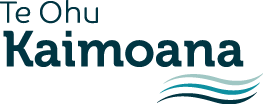8 Poutū-te-rangi 2023
We recently responded to the Government’s call for submissions on the Natural and Built Environment and Spatial Planning Bills. In support of our response, we also appeared in front of the Government’s Environment Select Committee on Monday 6 March 2023 to further advocate for our position on the Bills (you can watch our oral submission here).
Below you can find out more about:
- What the Bills are about
- What the proposed purposes of the Bills are
- What they are trying to achieve
- Our issues with the Bill and our positions
A full and final copy of our response to the Bills can be viewed and downloaded from here.
What are the Natural and Built Environment Bill and Spatial Planning Bill (the Bills)?
In November 2022, the Government introduced the Natural and Built Environment Bill (NBE Bill) and the Spatial Planning Bill (SP Bill) to Parliament.
This legislation is proposed to form the basis of a new resource management system for Aotearoa, replacing the Resource Management Act 1991.
The Climate Change Adaptation Bill, due to be introduced in 2023, will form the third and final element of the new legislative regime (NBE Bill, SP Bill & CCA Bill).
What is the purpose of the Bills?
The Government advises that the Bills:
“provide an integrated framework for regulating both environmental management and land use planning. It enables use and development within environmental limits and targets. It requires both positive outcomes to be achieved, and adverse effects to be appropriately managed.”
What are the Bills aiming to achieve?
The new resource management system created by these Bills has been designed to achieve five objectives:
- Protect and where necessary restore the natural environment, including its capacity to provide for the wellbeing of present and future generations.
- Better enable development within environmental biophysical limits including a significant improvement in housing supply, affordability and choice, and timely provision of appropriate infrastructure, including social infrastructure.
- Give effect to the principles of Te Tiriti o Waitangi to provide greater recognition of te ao Māori, including mātauranga Māori.
- Better prepare for adapting to climate change and risks from natural hazards as well as mitigating the emissions that contribute to climate change.
- Improve system efficiency and effectiveness, and reduce complexity, while retaining appropriate local democratic input.
What are our issues with the Bills?
Upholding Treaty Settlements – including the Māori Fisheries and Commercial Aquaculture Settlements in this reform
While there are several references to Treaty settlements in various clauses of the Bill, we recommend that the proposed system outcomes should explicitly incorporate the Crown’s responsibility to uphold the integrity, intent and effect of all treaty settlements.
We echo the position taken by the Freshwater Iwi Leaders Group in their submission on the Bills, “that the nature and effect of Treaty Settlements should have been foundational to the creation of the system, not viewed and addressed as incidental, consequential or transitional matters” as they are now being treated through this reform process.
The transitional, savings and related provisions for upholding and carrying over Treaty settlements in both Bills focuses on grievance based historic/ land-based Treaty settlements and appear to have failed to appropriately consider the Māori Fisheries and Aquaculture settlements, this is a significant oversight, particularly given the proposed scope through the Bills to regulate fishing.
Further to this we would like to see local government’s responsibility to Te Tiriti made explicit to make sure that Māori aquaculture and fishery settlements are provided for. They play an important role in delivering on the Crown’s obligations and this is a key issue currently.
As an example, the section 360 powers (carried over to sections 851 and 852 in the NBEB) in the RMA require changes to provide for Ministerial direction on draft plans rather than completed environmental plans (see page 44 section 18 of Te Ohu response) this has been an ongoing limitation under the current regime and it would be beneficial to amend it to allow for settlement obligations to be met.
Managing fisheries, and its effects under the new regime
We remain of the view that the Fisheries Act 1996 is the appropriate legislative tool to manage fishing. The use of mechanisms under the Fisheries Act with the agreements made under the Māori fisheries settlement and better provides for the ability to ensure protection of biodiversity through appropriate controls on fishing while still enabling customary commercial and non-commercial use consistent with that protection.
However, should the Select Committee determine that both the Fisheries Act and the Bills should regulate fishing, it is our expectation that Māori fishing rights, the Māori Fisheries Settlement and the Treaty of Waitangi must be upheld and protected.
We need clarity and scope of the current overlap between the Natural and Built Environment Bill, the Spatial Planning Bill and the Fisheries Act 1996. This includes all statutes mirroring each other to ensure consistency and clarity.
The final Bills should contain an explicit requirement for decision-makers to assess the effects of their policies, plans and consent decisions on the rights protected by Tiriti settlements, including the Māori Fisheries and Aquaculture Settlements when making fisheries management decisions under the RMA Schedule 4.
Successful implementation of resource management reform requires Te Tiriti compliant representation and resourcing to achieve partnership
The current provisions for participation at the national and regional levels are inadequate to ensure that the reforms are consistent with the principles of Te Tiriti. We support the position that Māori should be represented through iwi and hapū and should have 50/50 representation in appointments at all levels.
Even if there is 50/50 representation, it is essential that the participation does not usurp the mana of iwi and hapū to exercise their rangatiratanga.
We are seeking a commitment from the Crown to the deliberate development of iwi and hapū capability throughout the 10-year transition process.
We recommend a support role for Te Ohu Kaimoana as part of the development of the National Planning Framework.
The intent is not to usurp the mana or rangatiratanga of iwi and hapū being engaged, but to ensure the Māori fisheries and aquaculture settlements are enhanced or maintained through the development of all Bills and frameworks.
Inclusion of a ‘use’ outcome in the coastal Marine area is required
The Bills in their current form do not allow for ‘use’ within the coastal marine area and is almost entirely limited to protection.
It is important to recognise sustainable utilisation that currently occurs in the coastal marine area should not be negated by this reform. Further, the Crown has a Treaty duty to recognise iwi/hapū use and management practices and to enable the exercise of rangatiratanga and kaitiakitanga over their fisheries and other marine taonga (both commercial and non-commercial) including aquaculture.
To find out more and to see more of our response – click here.
Who are we and why are we responding?
We are Te Ohu Kaimoana – a mandated agent for 58 Mandated Iwi Organisations across Aotearoa. Our response arises from our responsibility to protect the rights and interests of iwi / Māori under Te Tiriti o Waitangi, the ‘Fisheries Settlement’ and the ‘Aquaculture Settlement’.
Our key concern is to ensure the new resource management system protects and upholds the commitments made by the Crown to iwi / Māori in the settlements and over-arching commitments in Te Tiriti o Waitangi.

